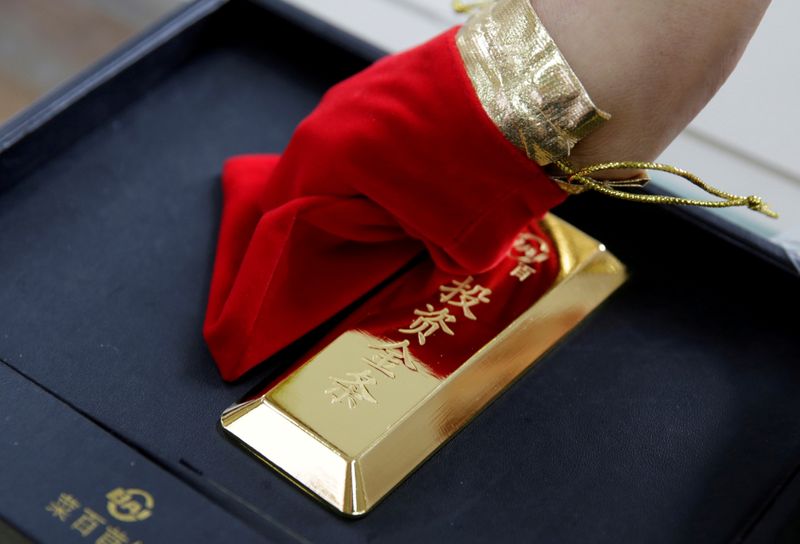By Samuel Shen and Emily Chow
SHANGHAI (Reuters) - The president of the Shanghai Gold Exchange (SGE) called for a new super-sovereign currency to offset the global dominance of the U.S. dollar, which he predicted would decline long term, while gold prices rally.
Concern has mounted among some market participants over the dollar-denominated system as the U.S. Federal Reserve cut interest rates to near-zero and embarked on unlimited quantitative easing to contain the economic damage of the coronavirus pandemic.
The measures have helped to drive gold prices
Wang Zhenying, who heads the world's largest physical spot gold exchange, said in an interview the gold gains should be sustained, but ultimately a new kind of currency was needed.
"Future global trade needs a super-sovereign currency system under which no single country has the power to freeze the international assets of another country," said Wang, who held senior roles at China's central bank, which supervises the SGE.
Wang foresaw a decline in the U.S. currency, triggered by the Fed's monetary policies.
"When the Fed turns on the liquidity tap, the U.S. dollar will, in theory, be in a long-term depreciatory trend," he said, even though the panic of the current crisis could trigger a temporary scramble for the greenback.
His comments on a new global currency echo a previous proposal to reform the international monetary system during the 2008/09 global financial crisis.
Zhou Xiaochuan, former governor of the People's Bank of China (PBOC), said that crisis and its spillover called for a super-sovereign reserve currency disconnected from individual nations.
Wang said the concept was still older. Indeed gold, one of the most ancient forms of money, falls into the category, but its supply is finite, limiting any role it can have in global trade.
The problem with the dollar-dominated monetary system, he said, was that it left countries vulnerable to potential U.S. sanctions and Washington's power to freeze a nation's international assets in the event of a dispute.
"It is a weapon for the U.S., but a source of insecurity for other countries," Wang said.
"The currency the world ultimately chooses for global trade must not be one that gives someone privilege, while exposing others to insecurity."
Wang, author of the book The Principle of Trading Economics, did not explain how the new currency could work, but said it must be adapted to a post-pandemic world, in which he said economic and political power would be more evenly spread.

"The global clout of the United States will reduce, while the status of the European Union and China will rise in global affairs," he said.